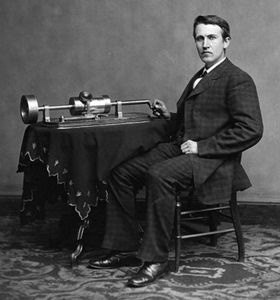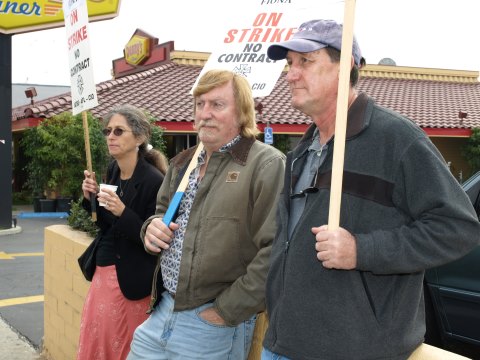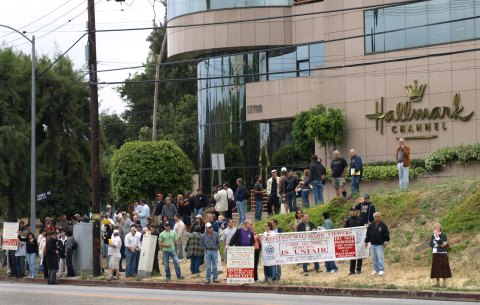News & Announcements
THE EXPANDED FILM AND TELEVISION JOB CREATION ACT
Although California’s incentive program has been credited with preserving as many as 51,000 well-paying jobs in the state and generating $4.5 billion in economic activity, it falls well short of the need. Under its restrictive provisions, hundreds of film and television productions failed to qualify. Applicants for a California incentive had about the same chance of acceptance as a student applying to Harvard. Even producers wanting to shoot in California often felt compelled to take their projects to states with better incentives.
To address this need, Assembly Members Mike Gatto (D-Los Angeles) and Raul Bocanegra (D-Pacoima) have introduced The Expanded Film and Television Job Creation Act (AB 1839). Their bill, co-authored by fifty-nine additional Assembly Members and nine State Senators, opens eligibility to a wider range of productions. It lifts the budget cap, extends eligibility to include pilots, makes television shows eligible regardless of the medium of distribution, extends the program for five years and offers additional incentives to stimulate production in California.
Sponsor Mike Gatto says, “This effort is a rare example of government appropriately taking steps to stem the loss of jobs out of state.”
Find out how you can support AB1839
and stay in touch with its progress
at www.BackToCA.com and at www.local695.com
A Tribute to Edison
Thomas Alva Edison, born in February 1847, is the father of the research lab and also, particularly, the father of recording sound for movies. His phonograph, invented in 1877, was the first practical recording and reproducing device. The initial design worked with a cutting tool to scratch the vibrations into tinfoil wrapped around a rotating cylinder. Later improvements enhanced its utility.
He also pursued the development of motion pictures and obtained a patent for the kinetograph, a film camera.
In 1879, the sale of an improved telegraph design to Western Union provided funds that he used to build Menlo Park, an industrial research laboratory that systematically sought to develop new products that might be marketed. It was the model for all the R&D labs that followed.
Not all his activities were beneficial. He also started the Motion Picture Patents Company (aka the Edison Trust) limiting access to motion picture technology to licensed companies. This forced potential competitors, like Cecil B. DeMille, to flee to California to pursue their ambitions away from patent enforcement agents. But, on the whole, his inventions were seminal and we acknowledge his accomplishments.


Fiona: Denny’s Job Action
Local 695 members turned out to support a job action at a Denny’s restaurant in North Hollywood. Fiona, a New York-based production company, was shooting a commercial but was forced to suspend production when key crew members refused to cross the picket line. We hope this will encourage them to bargain in good faith but the situation was still in flux as we went to press.

Update: Larry Levinson Productions
In the 2009 summer edition of 695 Quarterly, nearly five years ago, we reported on a job action at the Studio City offices of Hallmark Movie Channel. At that time, Larry Levinson Productions supplied much of the product for Hallmark. They pursued exploitative labor practices and vigorously resisted all organizing efforts. Since Hallmark is a company focused on family events, the union reasoned that they might feel more vulnerable to an action that brought attention to the family-unfriendly behavior of their main supplier.
More than two hundred union members turned out for three demonstrations in May and June of that year, communicating to Hallmark that they could not count on business as usual while a major content supplier denied overtime and health benefits to employees. After three days of action, the IATSE withdrew the picketers. This represents a strategy shift; sometimes the union will refrain from taking on an adversary in a fight to the death. Sometimes it’s better to give a company a little room to consider the advantages of cooperation.

I am pleased to report that circumstances today are much improved. While Larry Levinson Productions continues to supply product to Hallmark, and continues to intransigently resist organizing efforts, their role is now significantly diminished. Kyle Clark and Lina Wong, producers previously associated with Larry Levinson, split off and formed their own company, Silver Spring Pictures. Their company now supplies most of the Hallmark projects under an IATSE contract.
We believe the job action five years ago was instrumental in this change. It’s not important whether Hallmark insisted on the change or whether Levinson associates, reasoning that Hallmark would welcome a relationship with a production company holding union contracts, sought to provide it. Either way, members working Hallmark projects can earn hours toward health and welfare and have a contract that pays overtime wages.
There is much yet to be accomplished. Silver Spring Pictures is operating under a low-budget contract, not the Basic Agreement. It’s an incremental process but the first step is bringing them into the tent.
There are, I believe, lessons to take away from this. The first concerns the importance of responding to job-action calls whenever you can. The beneficial outcome of these actions may not be immediately apparent but they all carry a message to exploitative employers. The second takes the form of a challenge: The Hallmark demonstration was effective because more than two hundred turned out in support. Imagine what might have been accomplished if two thousand had answered the call and flooded Ventura Boulevard with protesting technicians.
–David Waelder
In Memoriam
GARY THEARD
Boom Operator
July 13, 1938 – Jan. 7, 2014
THOMAS A. MOORE Jr.
Mixer
July 7, 1951 – Jan. 30, 2014